
ACKNOWLEDGEMENTS
A huge thank you to Yuri Prasad, Brian Richardson and Weyman Bennett. Without their help and hard work I would never have been able to write this.
Thanks to Esme Choonara, Eileen Short, Lina Nicolli and Peter Robinson who turned a huge piece of text into an actual book with some great pictures to go with it. Special thanks to Saba Shiraz who supported and encouraged me throughout.
ABOUT THE AUTHOR
Antony Hamilton is an anti-racist activist and member of the Socialist Workers Party.
COVER IMAGE: Malcolm X speaking at an outdoor rally, probably in New York City, in 1963.
INSIDE FRONT: Malcolm sharing a joke with Muhammad Ali in February 1964 after Ali had become world heavyweight champion.
INSIDE BACK: Malcolm on a visit to Smethwick in Britains West Midlands on 12 February 1965, nine days before he was killed.
Published by Bookmarks Publications 2016
ISBN print edition: 978-1-910885-12-3
ISBN Kindle: 978-1-910885-13-0
ISBN ePub: 978-1-910885-14-7
ISBN PDF: 978-1-910885-15-4
Typeset by Peter Robinson
Printed by Short Run Press Limited

 1.
1.
INTRODUCTIONI n 2008 Barack Obamas election as the first ever Black president of the US sent shockwaves through American society. With the slogan Yes We Can, he became for many millions of people a beacon of hope and progress.
For those who remembered the civil rights movement of the 1950s and 1960s and the focus on changing society by electing Black people into positions of power, this was the ultimate goal and a huge step forward in the campaign to end racism.
However, during two terms in office the Obama Administration failed to address the violent racism at the heart of the US judicial system and allowed space for far right groups and reactionary politics to grow.
The Black Lives Matter campaign, launched in 2013 to challenge the second class status of Black people in the US, gathered momentum following the killings of Eric Garner and Michael Brown in July and August 2014.
The campaign exposed police brutality and racism, and the electricity and energy of the demonstrations pulled in huge numbers of new activists. Protesters against racist policing felt that their demands for justice would at last be heard. But instead of backing the protesters, Obama chose to tell them that they had to accept the decision of the US justice system because the US was a nation built on the rule of law (www.whitehouse.gov/blog/2014/11/24/president-obama-delivers-statement-ferguson-grand-jurys-decision). For millions in the US this means the police can continue to murder Black people with impunity.
The mass marches, sit-ins and rallies against racism across the US have continued, inspiring solidarity from every corner of the world. This shockwave of resistance has resonated in the UK where there had already been major upheavals.
In 2011 the killing of Mark Duggan by the police sparked riots across England, unleashing tensions that had been building for years under immense levels of police harassment, brutality and racism. The Black Lives Matter campaign reinvigorated this resistance in a more coordinated way, with solidarity actions in cities across the UK which fundamentally challenged structural racism.
Within any anti-racist movement there are huge tactical questions to be faced about how we can bring about the change we need, including whether white people can be involved, whether Black people must lead and whether this system can be made to work for us or whether we need a different one.
Our rich history of struggle provides a crucial guide to answering these questions. We have many iconic figures who we can look to: Martin Luther King Jr, Maya Angelou, Frederick Douglass, Angela Davis, the Black Panthers and the American Communist Party (CP) of the 1920s and 1930s. But one of the most significant figures remains Malcolm X.
Malcolm was a Black revolutionary Muslim whose slogan of uncompromising militancyby any means necessaryis still recognised all over the world. His life story shows how ideas can change with struggle. He was imprisoned, saved by religion and fought for Black separation. Later, as he travelled across Africa at a time of anti-colonial uprisings, he embraced integration and developed revolutionary ideas. His huge influence continued after his assassination; the Black Power movement was built on the back of his achievements. He exposed the link between capitalism and racism with a charismatic flair that left his opponents stunned.
Half a century after Malcolms assassination, we are still fighting a battle against an unjust system. At the end of the first Black presidency, the election campaign has seen Republican candidate Donald Trump call Mexicans rapists and demand a ban on Muslims entering the US. In Europe refugees, immigrants and Muslims are the targets of racism, labelled as terrorists and blamed for the failings of capitalism.
The need to take forward Malcolms arguments and militancy is as strong as ever. And, as Malcolms own political journey shows, ultimately we need to challenge the system itself.
 2.
2.
EARLY LIFE AND GARVEYISMM alcolm X is remembered by many for his revolutionary zeal, uncompromising attitude and militant spirit. He is one of the most iconic figures of Black Power and represented a radical edge of Black politics, which drew inspiration from anti-colonial struggles and cut through to the civil rights movement. However, he wasnt born with an understanding of the world and knowing he would fight with everything he had to change it. He wasnt even born as Malcolm X.
He was born Malcolm Little into a very poor family on 19 May 1925 in Omaha, Nebraska.
Although they lived in the Midwestin a state with no specific segregation lawsMalcolms family still suffered regular attacks by the white supremacist Ku Klux Klan (KKK) and harassment by the police. Holding down a job and keeping a roof over their heads was a constant struggle.
Malcolm was the fourth of seven children born to the Reverend Earl Little Sr and Louise Little. He also had three half siblings from Earls first marriage. This large family strained his parents ability to provide for their children and stay strong in the face of adversity. Louise later paid the toll of this emotional burden.
Earl and Louise were both political activists in Marcus Garveys United Negro Improvement Association (UNIA).
The UNIA was a Black nationalist group whose programme set out to organise capitalism in the interests of Black people. They set up Black only businesses, banks and housing associations and pulled a community together around a network of churches. The aim of the programme was to carve out a space for Black people in a racist society. In this sense it challenged racism, albeit in a very limited way, in the face of constant attacks from the state and white supremacists.
Garvey believed that the task for Black people was to return to Africa and build a better world for themselves there. This was based on a belief that all Black people had the same interests and left to themselves would create a Black utopia. It is from this tradition that Malcolm would later draw political inspiration.
Next page
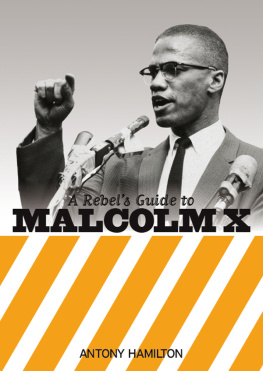
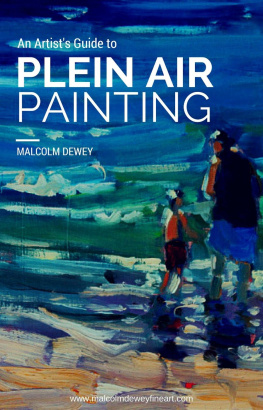
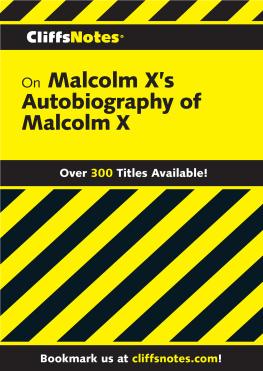

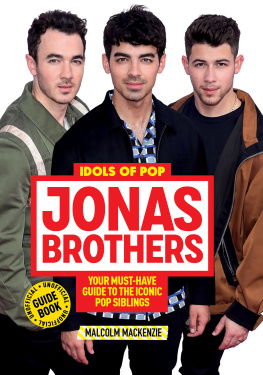
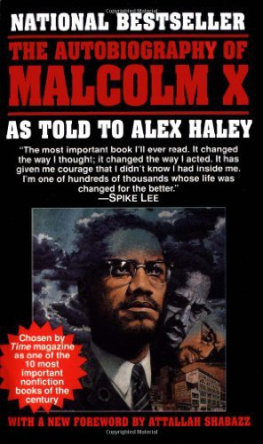
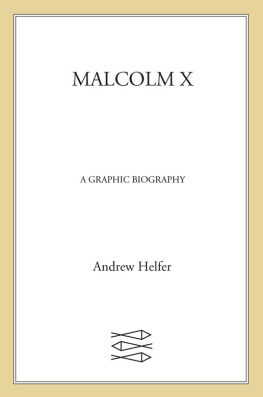
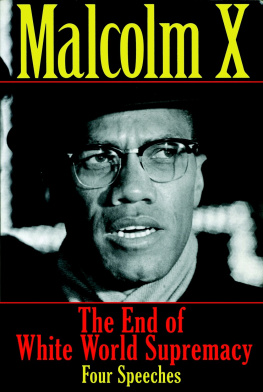
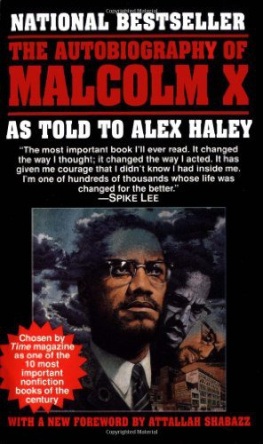


 1.
1.